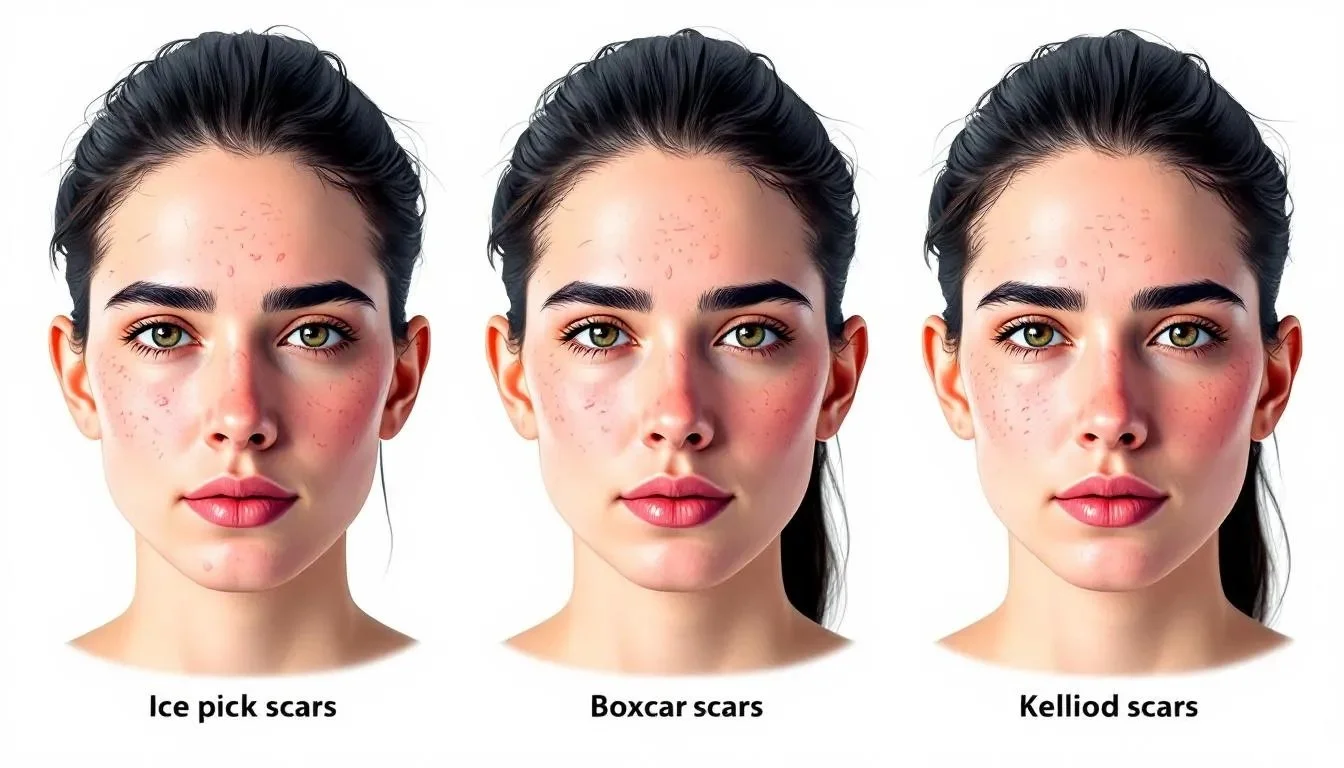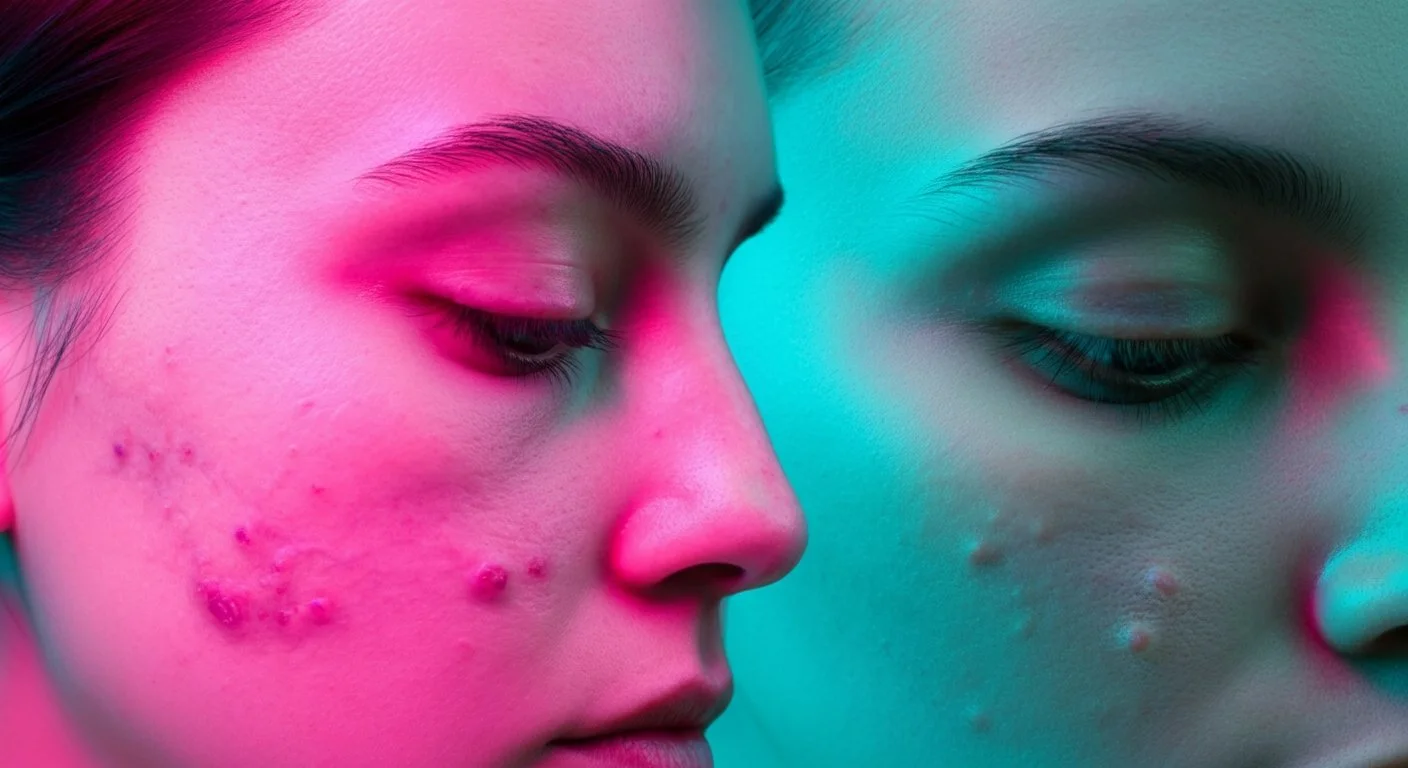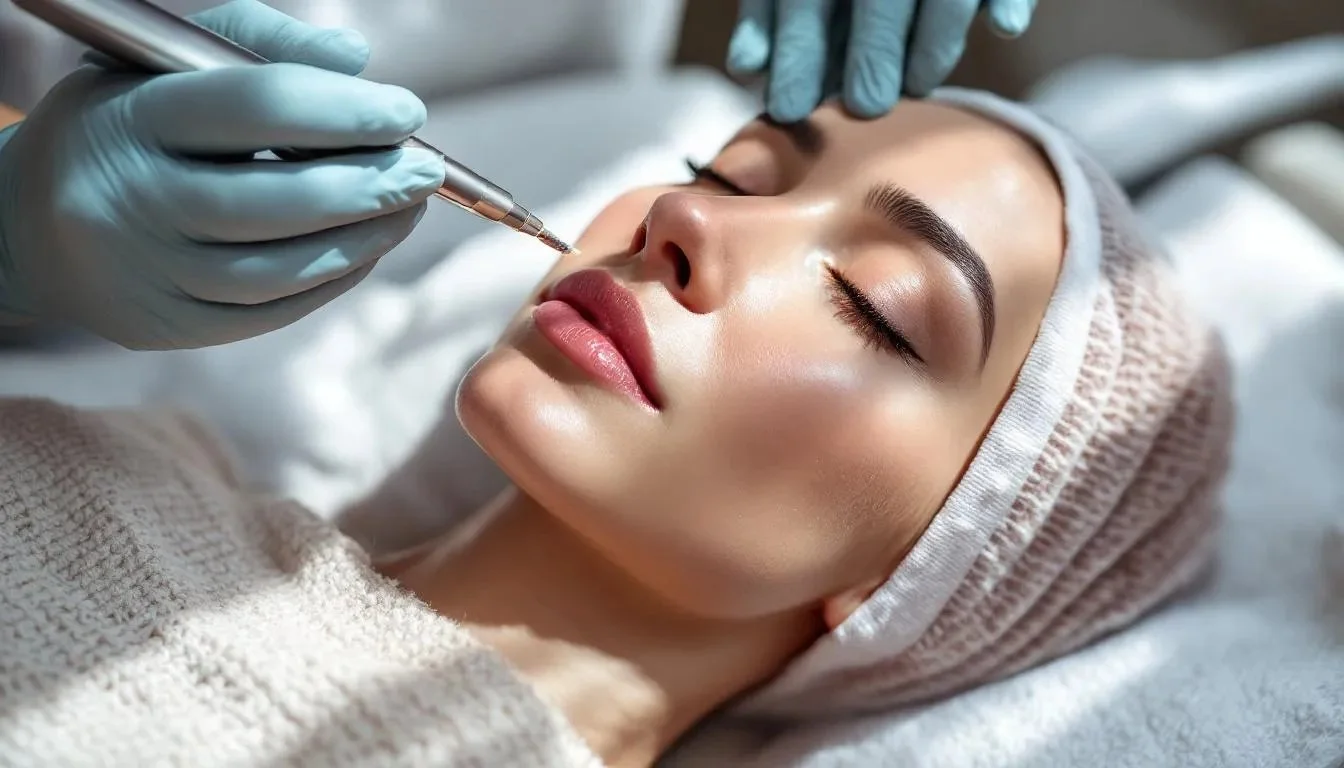Acne Scar Treatment Dermatologist: Your Complete Guide to Clearer Skin
Are acne scars making you feel self-conscious every time you look in the mirror? You're definitely not alone. Nearly 95% of people who've dealt with acne experience some form of scarring. The good news? Modern dermatology has come a long way, and professional acne scar treatment by a dermatologist can dramatically transform your skin's texture and appearance.
At Advanced Dermatology & Aesthetic Medicine in Chicago, board-certified dermatologists Dr. Monica Rani and Dr. Stavonnie Patterson specialize in treating acne scars using the latest medical technologies. Whether you're dealing with ice pick scars, rolling scars, or boxcar scars, there's a professional treatment that can help you achieve the smooth, confident skin you deserve.
Quick Answer: Professional acne scar treatment by a dermatologist includes advanced options like microneedling with PRP, fractional laser therapy, CO2 laser resurfacing, and medical-grade chemical peels. These treatments stimulate collagen production and resurface damaged skin, achieving 50-90% improvement in scar appearance within 6-12 months.
Understanding Different Types of Acne Scars
Before choosing the right treatment, your dermatologist needs to identify what type of acne scars you have. Different scars respond better to specific treatments.
Atrophic Acne Scars
These are the most common type and happen when your skin loses collagen during the healing process.
Ice Pick Scars are deep, narrow scars that look like tiny holes in your skin. They extend into the dermis and are the most challenging to treat. Think of them as if someone poked your skin with a sharp tool.
Rolling Scars create a wave-like appearance on your skin surface. They form when fibrous bands develop between the skin and underlying tissue, pulling the skin downward. These give your skin an uneven, undulating texture.
Boxcar Scars are wider depressions with sharp, defined edges. They look like round or oval craters and can be shallow or deep. These often appear on the cheeks and temples.
Hypertrophic and Keloid Scars
Unlike atrophic scars, these are raised above the skin surface. They develop when your body produces too much collagen during healing. Hypertrophic scars stay within the boundaries of the original acne lesion, while keloid scars extend beyond it.
Professional Acne Scar Treatments: What Works Best
A dermatologist has access to medical-grade treatments that simply aren't available over the counter. Here's what actually works.
Microneedling with PRP Therapy
One of the most effective treatments combines microneedling with platelet-rich plasma. This powerful duo stimulates your body's natural healing response.
The microneedling with PRP treatment creates controlled micro-injuries in your skin using tiny needles. These microscopic channels trigger your skin to produce fresh collagen and elastin. When combined with PRP (platelet-rich plasma from your own blood), the healing process accelerates dramatically.
Most patients see remarkable improvements within 4-6 sessions. Your skin becomes smoother, and those depressed scars start filling in naturally. The best part? There's minimal downtime compared to more aggressive treatments.
Advanced Laser Treatments
Laser technology has revolutionized acne scar treatment. Different lasers target different depths and scar types.
Fractional Laser Therapy creates microscopic treatment zones in your skin. It targets damaged tissue while leaving surrounding areas intact, which speeds up healing. This treatment works exceptionally well for rolling and boxcar scars.
CO2 Laser Resurfacing is considered the gold standard for severe acne scarring. It provides deep skin renewal by removing damaged outer layers and stimulating collagen production beneath. The results can be dramatic, but expect about a week of healing time.
The Aerolase laser used at our practice is FDA-cleared for all skin tones. This is crucial because some lasers can cause hyperpigmentation in darker skin. The Aerolase penetrates deeply to stimulate collagen without damaging the skin's surface.
Medical-Grade Chemical Peels
Chemical peels offered by a dermatologist are much stronger than what you'd find at a spa. They work by removing damaged skin layers and promoting cell turnover.
Superficial Peels using glycolic or salicylic acid help with mild scarring and post-inflammatory hyperpigmentation. These are great for maintaining results between more intensive treatments.
Medium-Depth Peels penetrate deeper to address moderate acne scarring. They remove more damaged skin layers and trigger robust collagen production. Your dermatologist will customize the peel strength based on your specific scar type and skin condition.
Why Choose a Dermatologist for Acne Scar Treatment
You might wonder why you can't just use at-home products or visit a regular spa. The difference comes down to expertise, technology, and customization.
Medical Expertise and Diagnosis
Board-certified dermatologists like Dr. Rani and Dr. Patterson have completed extensive training in skin biology and disease. They can accurately diagnose your scar type and determine which treatments will work best for your specific situation.
During your consultation, your dermatologist will analyze your scars using specialized magnification and lighting. They'll assess your skin type, review your medical history, and discuss realistic expectations. This thorough evaluation ensures you get the safest, most effective treatment plan.
Access to Medical-Grade Technology
Professional treatments use equipment that isn't available for home use. Medical-grade lasers, prescription-strength chemical peels, and advanced microneedling devices can penetrate deeper and deliver better results than consumer products.
The technology also allows your dermatologist to adjust treatment intensity based on your skin's response. This real-time customization minimizes risks and maximizes results.
Combination Treatment Approaches
The most dramatic improvements come from combining multiple treatments strategically. A dermatologist can create a phased approach:
Phase 1 focuses on initial improvement using chemical peels or light laser treatments. This prepares your skin and improves overall texture.
Phase 2 involves targeted scar treatment with microneedling with PRP or fractional laser therapy. These stimulate deep collagen remodeling where you need it most.
Phase 3 includes maintenance treatments and professional skincare to sustain your improvements and prevent new scarring.
What to Expect: Timeline and Results
Understanding the treatment timeline helps set realistic expectations and keeps you motivated throughout the process.
Initial Consultation and Assessment
Your journey starts with a comprehensive evaluation. Your dermatologist will photograph your skin, discuss your concerns, and explain which treatments are best suited for your scars. This is also when you'll learn about costs, expected results, and any preparation needed.
Treatment Sessions
The number of sessions depends on your scar severity and chosen treatment. Microneedling typically requires 3-6 sessions spaced 4-6 weeks apart. Laser treatments might need 3-5 sessions. Chemical peels can be done monthly for several months.
Each session typically lasts 30-90 minutes, depending on the treatment area and technique used.
Recovery and Healing
Most treatments involve some downtime. Microneedling causes redness for 1-3 days. Fractional laser creates a few days of flaking and redness. CO2 laser requires about a week of healing.
Your dermatologist will provide specific aftercare instructions. Following these carefully ensures optimal results and prevents complications.
Results Timeline
Week 2-4: You'll notice smoother skin texture and improved overall appearance.
Month 2-3: Meaningful scar reduction becomes apparent. Depressed scars start filling in, and skin tone becomes more even.
Month 6-12: Final results emerge. Most patients achieve 50-90% improvement in scar appearance, depending on initial severity.
Supporting Your Treatment with Professional Skincare
Professional treatments work best when combined with the right home care routine. Your dermatologist can recommend medical-grade products that enhance and maintain your results.
The ADAM skincare line offers dermatologist-formulated products designed to support professional treatments. The ADAM Radiance Pads contain kojic acid and arbutin to lighten dark spots and brighten your complexion—perfect for addressing post-inflammatory hyperpigmentation that often accompanies acne scars.
For post-treatment recovery, the ADAM Biocell Repair Moisturizer delivers ceramides, peptides, and antioxidants that support skin barrier repair and accelerate healing. This moisture-boosting formula helps your skin recover between treatment sessions.
Daily sun protection is absolutely critical during acne scar treatment. UV exposure can darken scars and undo your progress. Use SPF 30 or higher every single day, even when it's cloudy.
Acne Scar Treatment for All Skin Tones
If you have darker skin, you might worry about complications like hyperpigmentation. This is a valid concern—some treatments can cause discoloration if not performed correctly.
Working with an experienced dermatologist who understands melanin-rich skin is essential. At Advanced Dermatology & Aesthetic Medicine, we use treatments like the Aerolase laser that are FDA-cleared for all skin tones.
Chemical peel protocols are carefully adjusted for darker skin to prevent discoloration. Treatment timelines may be extended to allow proper healing between sessions. The extra caution ensures you get beautiful results without unwanted side effects.
Frequently Asked Questions
How long does it take to see results from professional acne scar treatment?
Most patients notice initial improvements in skin texture within 2-4 weeks of starting treatment. Significant scar reduction typically becomes apparent after 2-3 months of consistent treatment. Final, optimal results are usually achieved within 6-12 months, depending on the severity of your scarring and the types of treatments used. Remember that patience is key—your skin needs time to produce new collagen and remodel scar tissue.
Are acne scar treatments painful?
Most professional treatments involve mild to moderate discomfort rather than pain. Your dermatologist typically applies topical numbing cream before procedures like microneedling or laser treatments. Most patients describe the sensation as tolerable, similar to light scratching or warmth. Post-treatment discomfort is usually minimal and resolves within 24-48 hours. Over-the-counter pain relievers can help if needed.
Can acne scars be completely removed?
While complete elimination isn't always possible, modern dermatology treatments can achieve 50-90% improvement in scar appearance. The degree of improvement depends on several factors: your scar type, how deep they are, how long you've had them, and your individual healing response. Deep ice pick scars are typically the most challenging, while rolling and boxcar scars often respond very well to treatment.
What's the best treatment for deep acne scars?
Deep acne scars typically respond best to combination treatments. Your dermatologist might recommend fractional laser therapy combined with microneedling with PRP to stimulate deep collagen production. For severe cases, CO2 laser resurfacing provides the most dramatic results. Sometimes dermal fillers are used to temporarily lift very deep scars while other treatments work to improve them permanently.
How much does professional acne scar treatment cost?
Costs vary significantly based on treatment type, session number, and scar severity. A single microneedling with PRP session typically ranges from $400-800. Laser treatments can cost $500-2,000 per session. Chemical peels range from $150-600 depending on depth. Most patients need multiple sessions for optimal results. Many dermatology practices offer package deals or payment plans to make treatment more accessible. Keep in mind that acne scar treatment is typically considered cosmetic and isn't covered by insurance.
Ready to Transform Your Skin?
Professional acne scar treatment by a dermatologist offers real, lasting results that at-home products simply can't match. With advanced technologies like microneedling with PRP, fractional lasers, and medical-grade chemical peels, you can achieve dramatic improvements in your skin's texture and appearance.
The key is working with experienced, board-certified dermatologists who can accurately diagnose your scar type and create a customized treatment plan. Combined with professional-grade skincare and proper sun protection, these treatments can help you achieve the smooth, confident skin you've been dreaming about.
Don't let acne scars hold you back any longer. The expert team at Advanced Dermatology & Aesthetic Medicine understands how acne scarring affects your confidence and quality of life. Dr. Monica Rani and Dr. Stavonnie Patterson have helped countless patients achieve remarkable skin transformations using the latest evidence-based treatments.
Schedule your personalized consultation today to discover which acne scar treatments are right for you. Our South Loop Chicago location offers convenient appointments, and our team is ready to answer all your questions. Take the first step toward clearer, smoother skin—your future self will thank you.
Book your consultation now at Advanced Dermatology & Aesthetic Medicine and start your journey to confidence-boosting skin.




